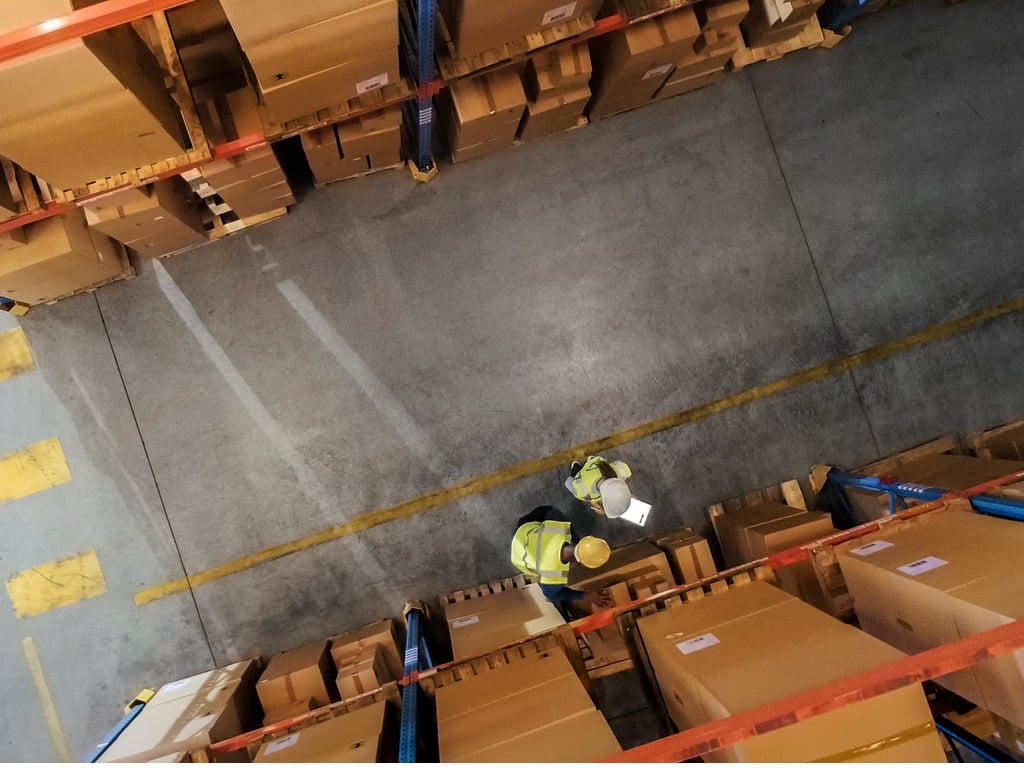Are the Department of Labor’s Occupational Safety and Health Administration (OSHA) whistleblower protection laws really helping whistleblowers? Contractors and subcontractors at a partially completed Amazon warehouse in Fort Worth talked to Stateline, an initiative of The Pew Charitable Trusts, about their experiences with safety hazards and hesitancy to speak out.
Employees at the warehouse spoke to Stateline anonymously for fear of retaliation but said that “supply chain issues and other COVID-19-related delays put the warehouse construction behind schedule.” The employees said that these delays caused neglect of safety standards: workers were working without safety harnesses, “welders used plasma torches while surrounded by flammable cardboard boxes, and laborers raised metal racks alongside a moving forklift, putting their feet in danger of being crushed,” the article states. Stateline reports that “Amazon did not respond to multiple requests for comment.”
“Everyone that’s spoken up has been fired for holding up production,” a contractor told Stateline. “It’s going to sound bad, but whistleblowing is not going to pay my bills.”
The article cites experts who say federal and state agencies responsible for “enforcing workplace safety” rely on whistleblower complaints but are short-staffed, thus causing delays in investigations into allegations. “Advocates say the delays and the stigma associated with whistleblowing dissuade most workers who witness unsafe conditions from speaking up,” the article states.
The article mentions that OSHA received a record number of whistleblower complaints in the 2020 fiscal year; many complaints had to do with COVID-19 safety concerns. “But complaints to federal and state authorities rarely result in fines or legal action, especially in states such as Texas where there are no state-enforced worker protections…Texas falls under federal OSHA rules; the agency did not respond to multiple requests for comment on this story,” Stateline reports.
According to the article, OSHA “made determinations in 2,263 whistleblower complaints under the Occupational Safety and Health Act” in 2021. The OSH Act of 1970 aims “to assure safe and healthful working conditions for working men and women,” and OSHA’s Whistleblower Protection Program enforces the whistleblower statutes of over 20 statutes. But Stateline reports that in fiscal year 2021, “OSHA dismissed 54% of complaints and took legal actions in about 27%. Only 21 cases, less than 1%, were found to have merit, meaning the agency asked for the employee to be reinstated or paid for damages,” according to data from the administration.
Whistleblower experts like Stephen M. Kohn of Kohn, Kohn and Colapinto express little confidence in the agency to thoroughly investigate whistleblower complaints and provide whistleblowers with decisions they deserve. “Kohn estimates that 95% of potential whistleblower retaliation cases nationwide are never filed with OSHA,” the article states.
Additionally, the article highlights that while some states have laws that expand on the whistleblower protections OSHA offers, 24 other states (including Texas) do not have their own OSHA plans. Former OSHA Chief of Staff and Senior Policy Adviser during the Obama Administration Debbie Berkowitz told Stateline that “it is nearly impossible for federal officials to enforce worker safety and health laws.”
“Workers can only enforce their rights under the law by asking OSHA to inspect, and OSHA resources are so scarce that it would take 160 years to inspect every workplace under its jurisdiction just once,” Berkowitz said.
The article also covers current legislation in the works and laws that have been already implemented that are intended to protect workers’ rights to speak up and blow the whistle.
